
Alphabetical Menu
Chronological Menu
|
Above Suspicion  Susan Smith (Emilia Clarke), a drug addict, lives with her ex-husband, Cash (Johnny Knoxville), kids and bank robbers in a small Kentucky town. When she meets FBI agent Mark Putnam (Jack Huston), she agrees to become an FBI informant to help him hunt for the serial bank robbers. They have a steamy love affair despite the fact that he's married to Kathy (Sophie Lowe). Above Suspicion, set in 1988, is based on a true story, but that's not something that's evident in the vapid screenplay by Chris Gerolmo. The film begins with Susan's voice-over narration as she lays dead in the woods before it flashes back to the events that led up to that tragedy. Narration is a tricky plot device that takes a sensitive screenplay to get it right. It worked in American Beauty with Lester Burham's narration because the words were wise and witty. In this case, the narration spoon-feeds the audience and takes away from the film's dramatic momentum. Why baby the audience? Why not treat them like adults since they're the target audience after all? None of the characters' feel like palpable human beings with inner lives, so it remains hard to care about or root for any of them. Why not let the film breathe a little by getting to know Susan and Mark a little bit more? Even if they don't make decisions that allow them to be likable, so what? They're still human beings at the end of the day, so turning them into one-note characters is ultimately dehumanizing to them and to the audience as well. It also undermines the actors and actresses who try their best to breathe life into their roles, but can't because of the shallow screenplay. Were the plot even remotely suspenseful, it could've been mindlessly entertaining instead of being mindlessly lethargic. Screenwriter Chris Gerolmo and director Phillip Noyce don't shy away from sex scenes, sans nudity, and violence, so at least Above Suspicion remains unflinching in those aspects. The cinematography captures the film's grittiness, although the style becomes repetitive and monotonous. The lack of comic relief also makes this an exhausting chore to sit through. Every great crime thriller has at least a few moments of levity. It's unfortunate that such an intriguing plot ends up so dull and forgettable. At a running time of 1 hour and 45 minutes, which feels more like 3 hours, Above Suspicion is a tedious, vapid and lethargic crime thriller low on thrills, humanism and suspense. It would make for a good double feature with The Little Things which is yet another dull and disappointing crime thriller. 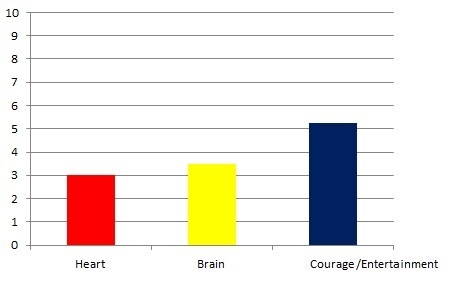 Here Today 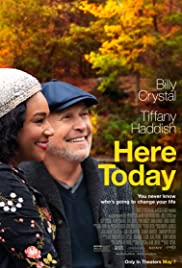 Charlie Burnz (Billy Crystal), a comedy writer, meets Emma Payge (Tiffany Haddish) at a restaurant for lunch. She says that she won the lunch with him at an auction for only $22 and he initially assumes she meant to say $2200. She has no shame in admitting that she had never heard of him, that she just left her cheating ex-boyfriend, Dwayne (Nyambi Nyambi), and orders seafood without knowing that she's allergic to it. Her bad allergic reaction to the seafood sends her to the hospital where Charlie visits her. The two gradually become friends and she even pays him back after he pays for her hospital bills. After he gets diagnosed with Alzheimer's, he tries his best to hide his diagnosis from her.
The screenplay by writer/director Billy Crystal and Alan Zweibel tries to be sweet, poignant and funny concurrently, but ends up failing for the most part. There seem to be at least 4 different subplots going on at once which makes everything seem unfocused. Besides the friendship between Charlie and Emma, there's his battle with dementia (the movie's silent villain), his relationship with his son, Rex (Penn Badgley), and daughter, Francine (Laura Benanti), and the traumatic memories of his late wife, Carrie (Louisa Krause). The flashbacks to his relationship with Carrie feel clunky and cringe-inducing at times, especially how they met on the beach for the first time. Then there's also Charlie's struggles to remain relevant and funny as a comedy writer after being successful for so many years as he tries not to let dementia affect his work. Given all of the subplots, this film could have easily been 4 hours, so it's a blessing that it's just under two hours which still feels pretty long. Crystal and Zweibel both grasp that comedy does indeed derive from tragedy, but they try too hard to please the audience and take the comedy to the lowest common denominator with cheap jokes and sight gags. This is the kind of movie where you can feel the keyboard clicking with every contrived line of dialogue. Charlie and Emma's visit to the Wax Museum allows for some witty humor about the wax figures, but it's ephemeral. The restaurant scene that's played for laughs when Emma gets a bad allergic reaction to seafood pales when compared to that iconic restaurant scene in the far more witty, touching, funny When Harry Met Sally... which also starred Billy Crystal. When the narrative veers toward darker territory toward the end, it shies away from it and becomes maudlin, saccharine and preachy. Even the aphorisms seem shallow and tacked-on. Charlie and Emma are no Harold and Maude, although, to be fair, comparing the two relationships, despite their many similarities, would be like comparing cheese to wine. Perhaps Here Today would work as a double feature with Harold & Maude being the wine and Here Today being the cheese--too much cheese, for that matter, but at least it would allow for audiences to appreciate Harold & Maude more. Where Here Today fails, Harold & Maude succeeds. 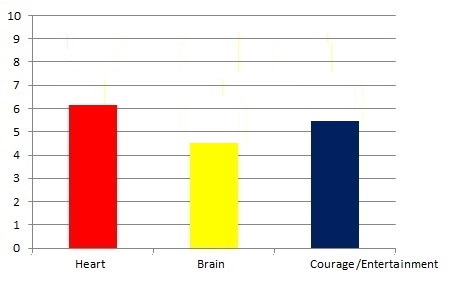 Paper Spiders 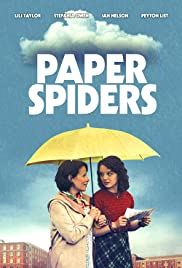 Melanie (Stefania LaVie Owen), a 17-year-old looking forward to leaving for college soon, lives with her widowed mother, Dawn (Lili Taylor), and has therapy sessions with her high school guidance counselor, Mr. Wessler (Michael Cryil Creighton). Dawn suffers from an undiagnosed mental illness that makes her paranoid, particularly about her neighbor who she thinks is spying and harassing her. Her delusions even threaten her job at the law office of Bill Hoffman (David Rasche). Melanie starts dating Daniel (Ian Nelson) and sets Dawn up on a date with Howard (Tom Papa). Meanwhile, Dawn hires a PI, Gary (Max Casella), to investigate her neighbor. Paper Spiders could've turned into an overstuffed, uneven drama if it didn't have such an organic screenplay by writer/director Inon Shampanier and co-writer Natalie Shampanier. The husband-and-wife team of filmmakers do a great job of blending comedy, drama with a little romance while treating the characters as well as the audience as human beings. It's fundamentally a story about the unconditional love between a troubled mother and her daughter who, at times, has to parent her very own parent. Dawn never comes across as unlikable even though she's not always a great role model for Melanie. She's flawed and fallible like all human beings are which makes her all the more relatable. Kudos to the filmmakers for not asking the audience to judge her, but rather to experience her. The same can be said for Melanie who's trying her best to deal with the psychological effects of living with a mentally ill parent. Interestingly, the filmmakers choose not to show the neighbor, just his wife, so he's left to the audience's imagination. The focus remains on the dynamics between Melanie and her mother which feels real throughout all of its ups and downs. It's also worth mentioning that Inon and Natalie Shampanier do a great job of incorporating comic relief which makes Paper Spiders less intense than it might sound like based on its premise. There are indeed some emotionally resonating scenes, but for the most part, the tone is light and the film avoids schmaltz and melodrama. There's nothing "Nicholas Sparks" about the romantic subplots with Melanie and Daniel or Dawn and Howard nor do those subplots derail the films; they enrich the audience's understanding of Melanie and Dawn as human beings who want to feel loved and to love others. Michael Cryil Creighton has some very funny dialogue as Melania's guidance counselor who quips that he's also there because of problems with his mother when Melanie announces that she's doing therapy because of her mother. As funny as that line is, it's also based on the harsh truth that everyone has issues to deal with in life. How Melanie chooses to help her mother and does what's best for her won't be spoiled here, but her decision does highlight her compassion, kindness and empathy toward her. Those are very admirable traits which makes Melanie a very decent person worth caring about and seeing as a role model. Both Lili Taylor and Stefania LaVie Owen give raw, moving performances that enrich the film with warmth, tenderness and poignancy. They both get a chance to shine thanks to the well-written screenplay that provides a window into their character's heart, mind and soul. At a running time of 1 hour and 49 minutes, Paper Spiders is genuinely heartfelt, funny and captivating. It's a warm, wise and wonderful story about unconditional love and compassion. 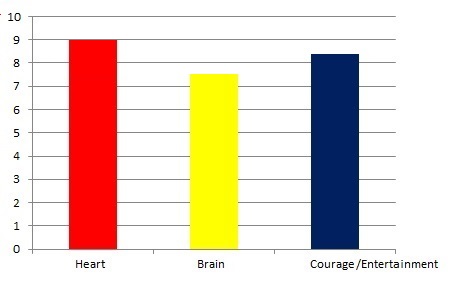 Paper Tigers 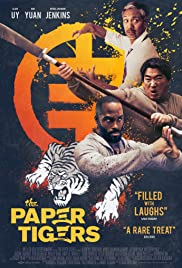
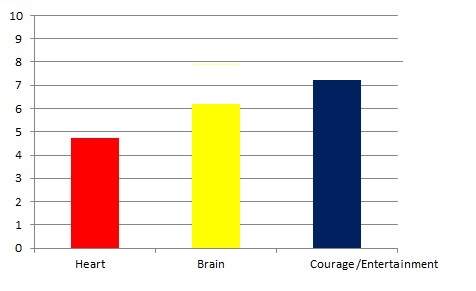 Walking with Herb 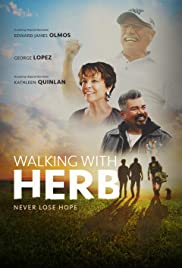
 The Water Man 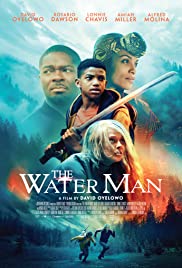
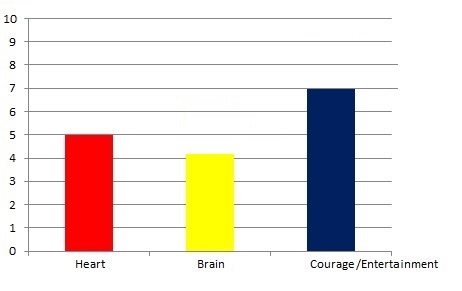 Wrath of Man 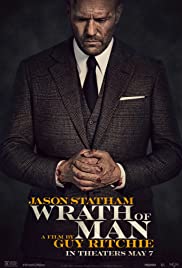
 |